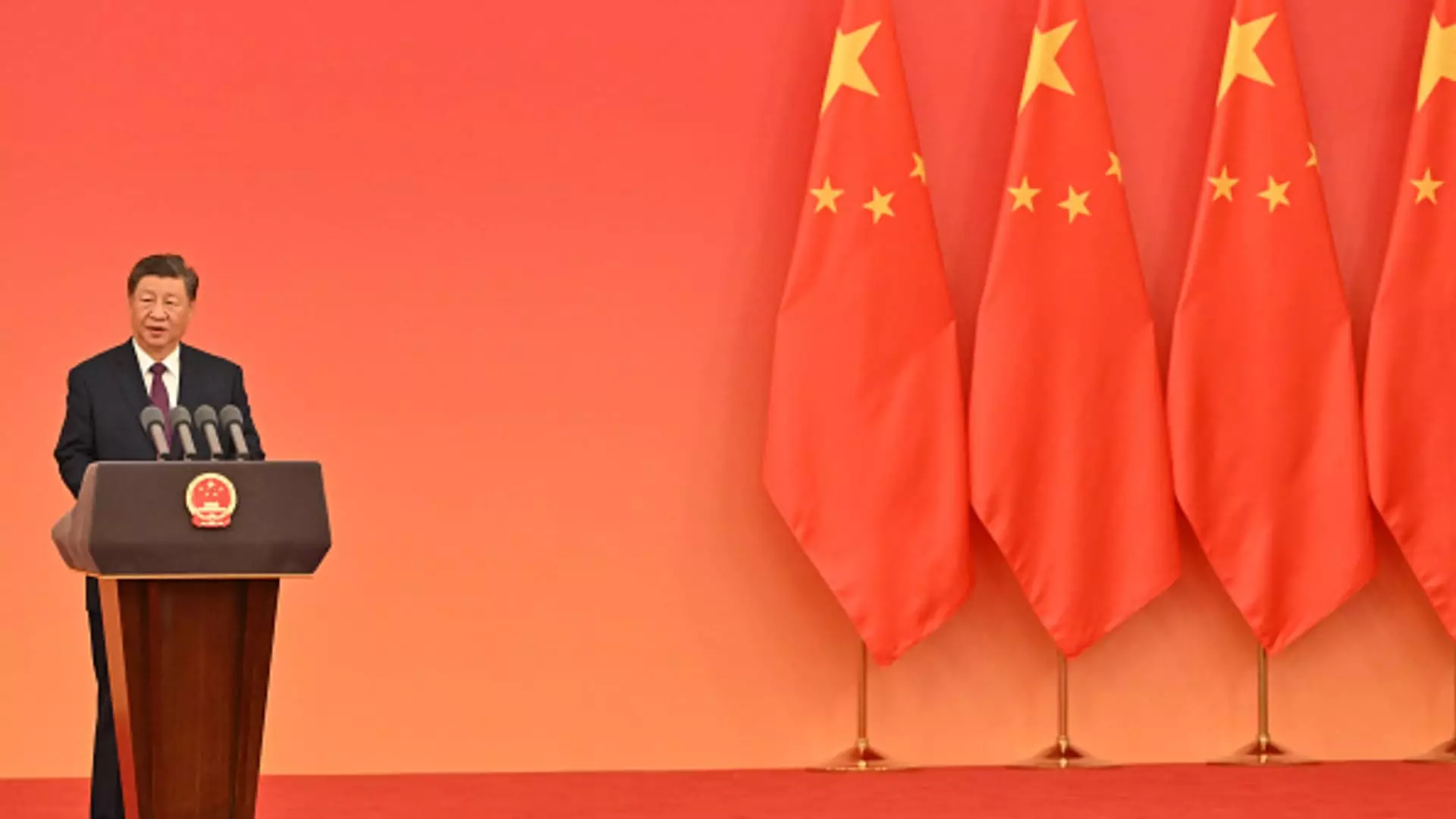On the occasion commemorating the 75th anniversary of the People’s Republic of China, President Xi Jinping delivered a speech that encapsulated his visions for China’s future, including a reiteration of Beijing’s reunification aims with Taiwan. Addressing a crowd of approximately 3,000 attendees in Beijing, Xi’s remarks were delivered against a backdrop of rising tensions not only with Taiwan but also with Western powers such as the United States and Europe. This heightened international scrutiny has positioned Xi’s proclamations as not only a domestic rallying call but also a response to external pressures.
Xi’s assertion that “no challenges can stop China’s progress” underscores a strong sense of determination from the leadership in the face of adversities. His speech highlights that, although China will encounter obstacles ahead—both economic and geopolitical—the resolve to advance remains steadfast. Through this rhetoric, Xi seeks to solidify national unity and underscore the leadership of the Chinese Communist Party, positioning these ideals as foundational to China’s path forward.
A significant portion of Xi’s address was dedicated to the notion of reunification with Taiwan, which he framed as an inevitable outcome of historical progression. While China views Taiwan as a breakaway province, the island operates as a self-governing democracy, leading to a fraught relationship characterized by political and military tensions. Xi’s insistence on “firm opposition” to any form of “separatist” activities suggests an uncompromising stance on Beijing’s policy while encouraging economic and cultural collaboration between the two entities.
In portraying reunification as a historical necessity, Xi not only resonates with nationalist sentiments within mainland China but also aims to convey an air of inevitability regarding Taiwan’s return to the fold of the People’s Republic. The emphasis on cultural and economic cooperation may serve dual purposes: promoting a more benign image of China’s intentions while attempting to foster dependency and closer ties that could ease geopolitical tensions.
The climate of global economics has shifted dramatically in recent years, leading to heightened tariffs and restrictions imposed by Western nations on Chinese imports and technology access. Notably, Xi’s speech refrained from mentioning specific nations or ongoing trade disputes, instead portraying China as a champion of globalization. This approach reflects a strategic choice to frame China positively on the international stage, appealing to countries while simultaneously dismissing Western narratives that depict China as a threat.
It’s crucial to analyze what this portrayal means for China’s global ambitions. By promoting itself as a proponent of globalization while concurrently navigating an increasingly isolationist global environment, China seeks to carve out an influential role in international affairs. Xi’s references to “national rejuvenation,” encompassing not just Taiwan but also Hong Kong and Macao, serve to reinforce a narrative of restored regional leadership and prosperity under a unified Chinese identity.
The economic backdrop of the speech is equally significant. Recent recovery in Chinese markets and stock indices suggests a responsive administration focused on revitalizing its economy. With mentions of halting the decline in real estate and enhancing fiscal and monetary policy, Xi implies that economic stability is paramount as the country grapples with internal and external challenges.
While the People’s Bank of China has recently implemented interest rate cuts, the awaited fiscal measures from the Ministry of Finance signal that the government’s toolkit remains open to adjustments. Xi’s acknowledgment of economic cooperation can be viewed as a broader strategy to catalyze growth and manage dissenting sentiments among the population.
Xi Jinping’s recent address encapsulates a multilayered vision for China—a vision that intertwines historical necessity with aspirations for economic rejuvenation and greater global stature. Through reaffirming commitments to reunification with Taiwan, asserting opposition to external challenges, and highlighting economic resilience, Xi not only reinforces his grip on local narratives but also seeks to establish China’s role in a rapidly changing world order.
As the People’s Republic of China celebrates its past, the reflections of this anniversary point towards a more contentious and complex future, fraught with possibilities that could reshape the landscape of global geopolitics. Xi’s vision, vocalized in this significant moment, acts as both a promise and a challenge to the nation, encouraging unity while beckoning to adapt to an ever-evolving global reality.

